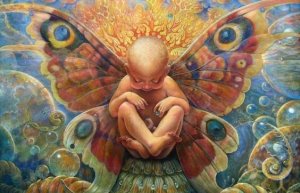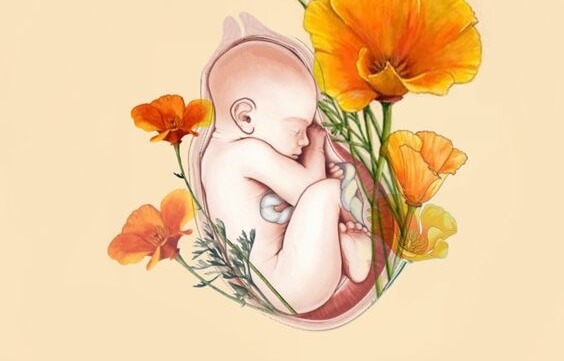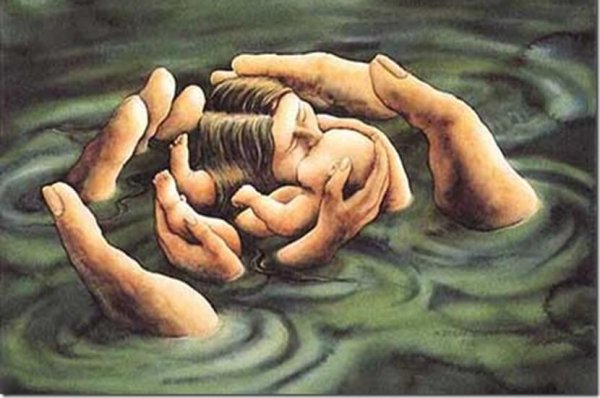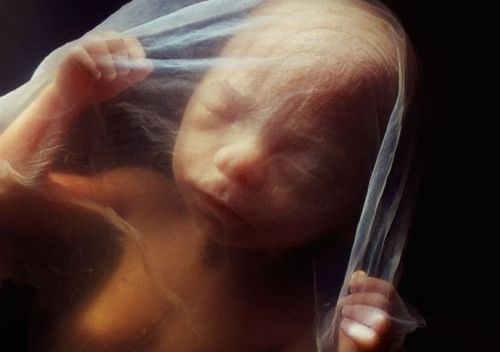Tell Me Again How I Was Born


Written and verified by the psychologist Gema Sánchez Cuevas
Mom, tell me again about how I was born. Dad, tell me about what you felt. Tell me if you were afraid in those hours before I was born.
What was your joy like? When you saw me for the first time was I how you dreamed I would look? Tell me again how everything was when I was born, even though I know the story like the back of my hand.
Because they say that to remember is to live again, and to savor memories is to share happiness.
Every child at some point is curious to know what that time they came into the world was like. Sometimes the parents or grandparents tell the story and leave out the medical (maybe traumatic) parts of labor.
They focus on what it felt like, writing a prologue to life and filling it with magical stories and symbolic details. It gives the child a meaningful origin, a reference point.
“Man’s main task is to give birth to himself”
-Erich Fromm-
These stories woven into our family also define us as people. Knowing “what happened when I was born” and visualizing our parents seeing us for the first time helps us to situate ourselves and put the first marker in our timeline.
Because none of us can remember that instant, our own birth.
Plato said that the simple act of being born implies starting to “forget”. As the Athenian sage explained to us, when the soul is locked in the body, we lose a vast universe of wisdom that was originally bequeathed to us.
We must therefore start learning again to “remember” what we once knew, what was once ours.
His theory about remembering has some interesting nuances. It also raises questions like what kind of instinctive, primitive knowledge can a baby have in the peaceful, fluid environment of the womb.

Before we’re born, we already can recognize faces
Before entering the world, a baby already knows that it is human. In its still immature brain, it inhabits the universe of instincts, throbbing and pumping hard in brain cells and in genes where everything we are, and everything we need is inscribed.
In fact, this baby who has not yet seen anything from the outside world, can identify and respond to faces.
This year at the beginning of June, Lancaster University in the United Kingdom published an interesting article in the magazine “Current Biology“. It explained how fetuses at 34 weeks react exclusively to shadows shaped like a human face.
Researchers projected light through the wall of the mother’s uterus to observe how babies turned their heads only to follow images shaped like a faces. The rest of the stimuli, other shapes, didn’t interest them.
These experiments reveal two simply amazing things. The first is that fetuses between 33 and 34 weeks are already able to process sensory information and discriminate between different information.
The second, and even more fascinating, is that we are “programmed” to connect with our own species. It does not require postnatal experience to know, for example, what mom or dad will look like.
The baby will not recognize their features, of course, but it will “recognize” or “remember” (as Plato would say) what aspect, form and proportion their own species has.

What I remember from when I was born…
What we remember about the time we entered this world is nothing. It’s lost in the sea of time. It’s a tunnel that disappears in the few folds of a brain that hasn’t yet formed a mature prefrontal cortex.
The memory is vague, if not nonexistent, because the brain of a newborn has a scarcely functional hippocampus. The hippocampus is the structure that determines which sensory information will be transferred into “long-term memory”.
It’s not yet active, and won’t be until age three when the child begins to put together significant memories.
“There are two great days in a person’s life – the day we are born and the day we discover why. ”
-William Barclay-
However, psychologists have discovered that babies between three and six months old do keep some kind of memory for quite some time. They are implicit or unconscious memories, stored in the cerebellum.
These memories lead the babies to associate warmth and security with their mother’s voice. They are imprints associated with instinct, that dormant whisper of our brain that moves us, pushes us to connect with our own species. It’s vital.

To conclude, none of us remembers our birth. We don’t know what we felt or thought when we made contact with that external world full of shapes, colors, and crazy sounds.
It might have seemed threatening. Maybe we panicked. But perhaps fear vanished as soon as we were placed on our mother’s chest.
Since we do lack our own memory, we appreciate the story our family tells us. That unique, special story of how we were born.
This text is provided for informational purposes only and does not replace consultation with a professional. If in doubt, consult your specialist.








